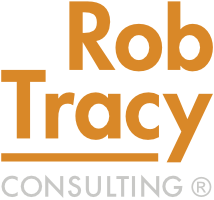Management Operating Systems (MOS), such as EOS®, Scaling Up®, and Rhythm®, are valuable and powerful tools that produce terrific results for many businesses. But they are not necessarily a good fit for every business or every situation. Like any powerful tool, these systems are most effective when used for the right jobs.
Great Fit for a MOS
Let’s first review some issues that are a great fit for a MOS.
Communication – A single weekly meeting of the leadership team can save time and result in better, faster decisions. With discipline, it can also focus on problem-solving.
Alignment – Even in small companies, there is a need for clear and constant alignment on strategy and priorities. This is an emphasis for any MOS.
Focus – Clear focus on the company’s strategy, markets, and target customers is foundational It will support consistency in decision-making at all levels. No distractions and detours.
Accountability – True accountability is a voluntary mindset, accepted and expected broadly by all individuals at all levels. Consistent and transparent accountability is fundamental to any MOS.
Teamwork – In day-to-day operations there are many small obstacles to teamwork. Any MOS will spotlight the need for – and results from – good teamwork.
Execution – Execution is simply getting stuff done, effectively, efficiently, and on time. It’s the key value of any MOS. If it’s your primary challenge, a MOS will help.
Not a Great Fit for a MOS
Now let’s review some issues that are NOT a great fit for a MOS.
Strategic Moves – Significant strategic moves, such as the response to new competition, new technology, new markets, or major new products are not a fit for a MOS. Selecting the right strategic moves requires external resources, expertise, and perspectives. And they are not typically integrated into MOS tools.
Personnel Development – A common concept in operating systems is to be sure that the “right persons are in the right seats” on the leadership team. But they don’t address how to develop staff so that they can grow into leadership roles. Or, just as critically, to expand the skills of the current leadership team members.
Wrong Leadership Team – If a leadership team is dysfunctional, doesn’t include the right set of skills, or is uninterested in collaboration, no MOS will solve those problems. Any MOS will highlight skill gaps, poor cooperation, or underlying tensions. So problems will be amplified, not resolved.
High Conflict Situations – If there is high conflict among the owners or leaders of a business, the implementation of a MOS won’t be successful. These systems assume a baseline of teamwork and collaboration, as well as tradeoff of personal or department priorities for the achievement of company goals. Such conflicts need to be resolved outside the MOS.
Weak Process Discipline – Any MOS requires a commitment to structured processes. These, include the weekly review of scorecard metrics, measureable progress toward quarterly goals, and quarterly evaluations. Half-hearted commitment to such discipline will cripple any MOS.
Loose Partnerships – Many partnerships, such as accounting firms, law firms, and other professional services firm are a loose confederation of independent revenue generators. Decision-making is often highly decentralized and not driven by a single firm-wide leadership team. This is not a great fit for any MOS.
Consider the above list before adopting any MOS. Or to resolving those that are not a great fit by utilizing tools and resources outside your MOS.
Mark Capaldini is President of Opportunity into Revenue (www.oppintorev.com). He offers a free two-page questionnaire, entitled “Optimizing for Any Management System.” Request a copy by emailing him at mark.cap@oppintorev.com.
Read more from Mark at his blog at https://oppintorev.com/blog/
